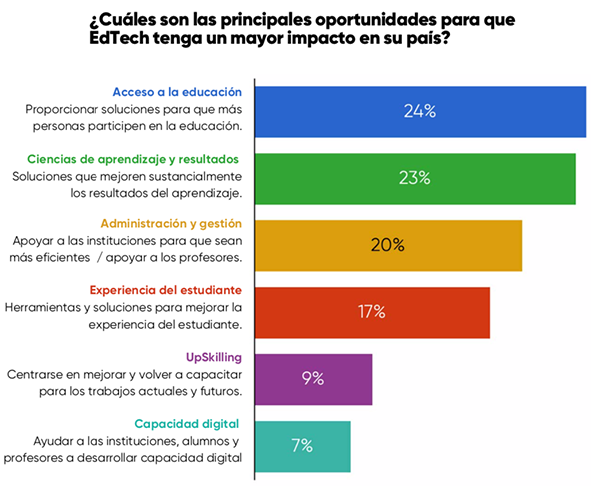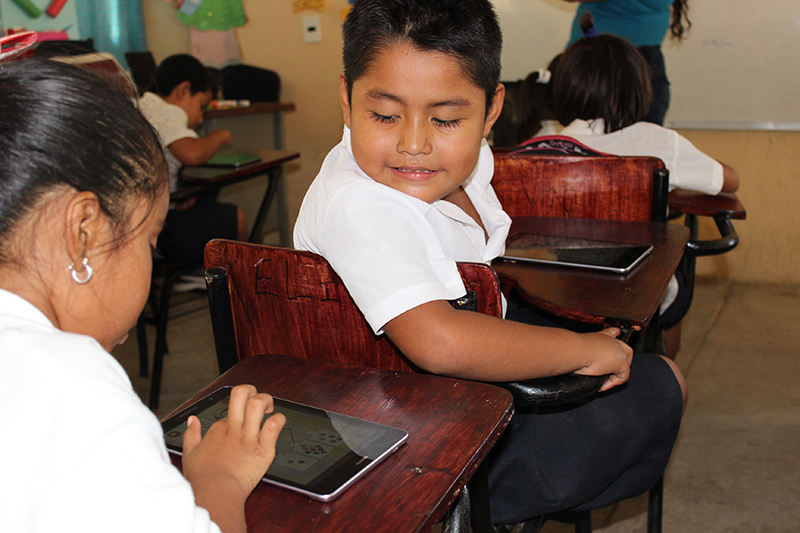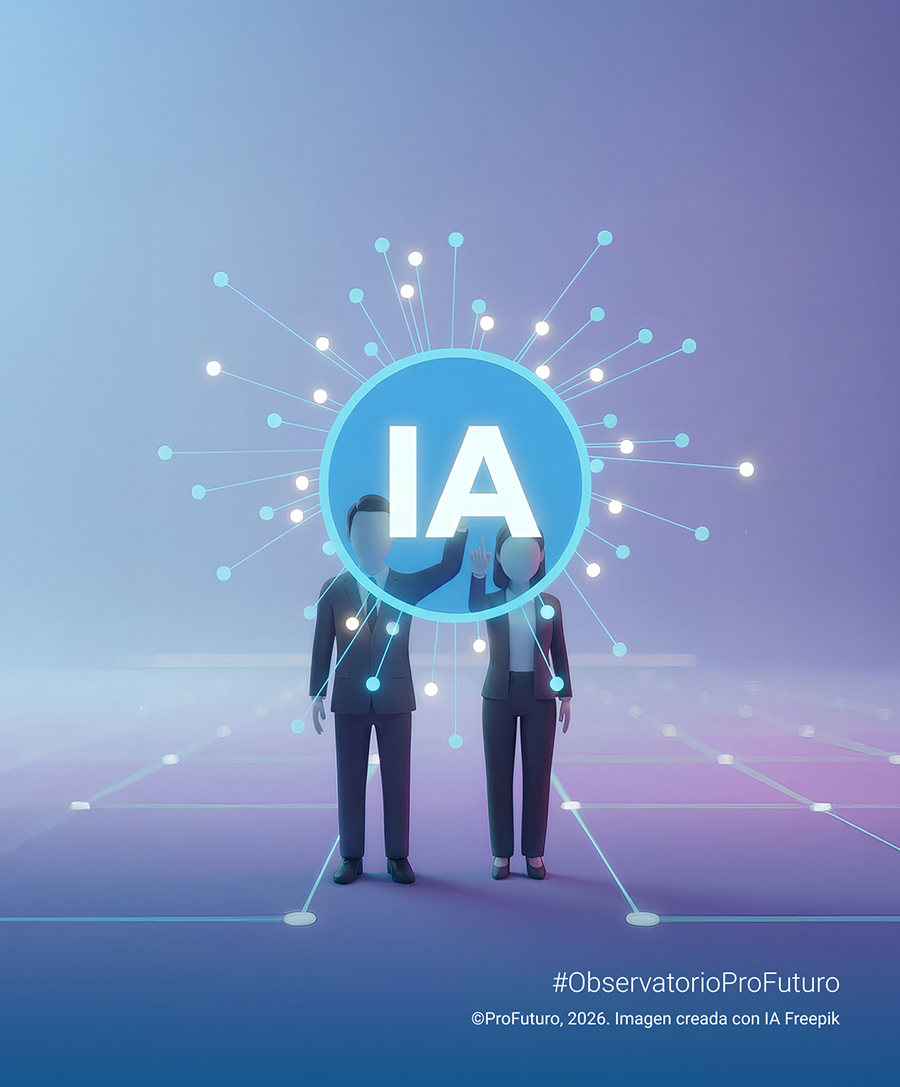The educational technology sector is growing steadily in the Latin American and Caribbean region. According to a report by the IDB and the Holon IQ in the last year (2021), investment in education technology has increased six-fold over the average of the previous three years. The publication Educational Technology in Latin America and the Caribbean analyses the situation of this sector in the LAC region with the aim of identifying its impact, as well as the opportunities and challenges faced by these educational innovations.
The report is based on existing public data from governmental and non-governmental organisations, as well as interviews with a range of experts (EdTech executives, investors, education leaders, media and governmental bodies) and a survey of 130 industry stakeholders from 12 countries. Data from the HolonIQ “impact intelligence platform” was also examined, which included analysis of more than 2,700 educational organisations and the study of private equity investment transactions in EdTech over the past 10 years.
A powerful engine of growth for a region in crisis
One of the main conclusions of the report warns of the enormous potential of educational technology (EdTech) as an engine of growth in the region, as it “accelerates economic recovery, addresses inequalities, increases access and multiplies support from teachers, institutions, parents and mentors”. How are these opportunities for impact carried out? What challenges must we overcome for this great potential for change to begin to materialise? We see it.
EdTech opportunities
Stakeholders consulted in the report identified several impact opportunities for education technologies. The most important of these are set out below:

Source: Survey BID & Holon IQ.
- Almost a quarter of respondents identified “access to education” as the best opportunity, which speaks to the possibilities of online learning to enable people who work and live far from educational facilities to participate in education in a location that suits their other responsibilities.
- Quality of learning. Almost another quarter of respondents made a direct link between educational technologies and the impact on learning outcomes. Research in the learning sciences is now incorporating EdTech tools and solutions as factors that can lead to improved learning outcomes, as many of them have educators and pedagogues designing solutions with a solid pedagogical basis that enables this improvement, even on a large scale.
- Administration and management. One in five stakeholders identified administration and management as the main opportunity for impact, focusing on working with institutions to support their efficiency, support teachers, improve communication between school and parents and to make better use of data generated from learning.
- Student experience. The student’s own experience is also seen as an opportunity for impact, as educational technologies favour personalisation of learning and support for students outside the classroom.
The challenges of educational technologies
As we have seen many times before, and as the authors of the report reiterate, “the incorporation of digital technology into education systems is a multidimensional challenge that extends far beyond the school gates”. Let us look at some of the most important ones identified by the experts interviewed for the study.
- Teacher training. The most important challenge of all. We have dealt with it in this Observatory on many occasions. Teacher education and training is vital to equip teachers with the technical and pedagogical skills they need to provide their students with technology-enabled learning that is adapted to their new educational needs.
- Equipment and hardware. Although classrooms are gradually being equipped in this way, installation and training in its use needs to be seen as an ongoing need for the system. Technology support staff, ongoing training, maintenance and upgrading of devices over a sustained period are needed to ensure long-term integration into teaching and learning processes.
- Internet connection. Reliable Internet connection is necessary to support technology-enabled learning, particularly for the delivery of rich content, learning activities and assessment. Ideally, internet connection should be available at home and at school so that learning is not interrupted; however, this becomes a wider problem that disadvantages families with fewer resources.
- Digital content. Digital educational content is becoming increasingly important. It is not about adapting analogue content to digital education. Schools need access to learning resources aligned to their curricula in order to adapt them to their students and their contexts.
- Rigid state regulations. Education technology startups work in large, highly regulated public systems that do not move at the same speed as the needs of the market.
- Impact measurement. Some interviewees highlighted the importance of measuring the impact of EdTech, along with the difficulty of opportunities to do so.
How to improve and accelerate the impact of EdTech in LAC?

The IDB and Holon IQ study asked experts and stakeholders in the EdTech sector to identify those factors that would help improve and accelerate the impact of educational technology in the Latin American and Caribbean region. This is what they were told.
- Learner-centred approach. Focusing on what learners need and designing learning experiences and educational programmes around those needs is at the heart of innovation in education. Educational technologies must uphold this fundamental maxim.
- Collaborative systems. Changes in systems that are so complexly embedded in the social, cultural and economic structure of countries require the commitment and participation of many actors: governments, businesses, institutions, parents and teachers working together to achieve significant changes and improvements in access to education and learning outcomes.
- Data-informed decisions. The concept of “impact” in education is complex, with many factors at play and causal outcomes that take time (sometimes many years) to confirm. It is therefore imperative that data inform decisions on learning-related initiatives.
- Attracting investment and promoting partnerships. Governments around the world are seeking public-private partnerships and working with technology companies and investors to accelerate progress in education. Nations that establish successful partnerships and stable and trusted investment environments will lead the way, attracting the best talent and delivering superior learning outcomes that drive their social and economic development.
- Capacity building. At the heart of any kind of digital transformation is having the capability, both people and infrastructure, to design and deliver effectively. Education must ensure that its teachers, academics, leaders and administrators are adequately equipped to design and deliver digitally-enabled education. They should also have the capacity to develop 21st century skills, particularly digital skills, in order to boost the global competitiveness of Latin America and the Caribbean.
Will new educational technologies be the engine of change that Latin America and the Caribbean need to emerge from one of the biggest educational crises in its history? The challenge is enormous but so are the opportunities. It is in these circumstances that innovative ideas and solutions are needed more than ever. The education technology sector in LAC is experiencing unprecedented growth. How their development is addressed will determine whether they can realise their full potential to help the economic and social growth of one of the most unequal regions in the world.
Here you can download the full IDB and Holon IQ study.






